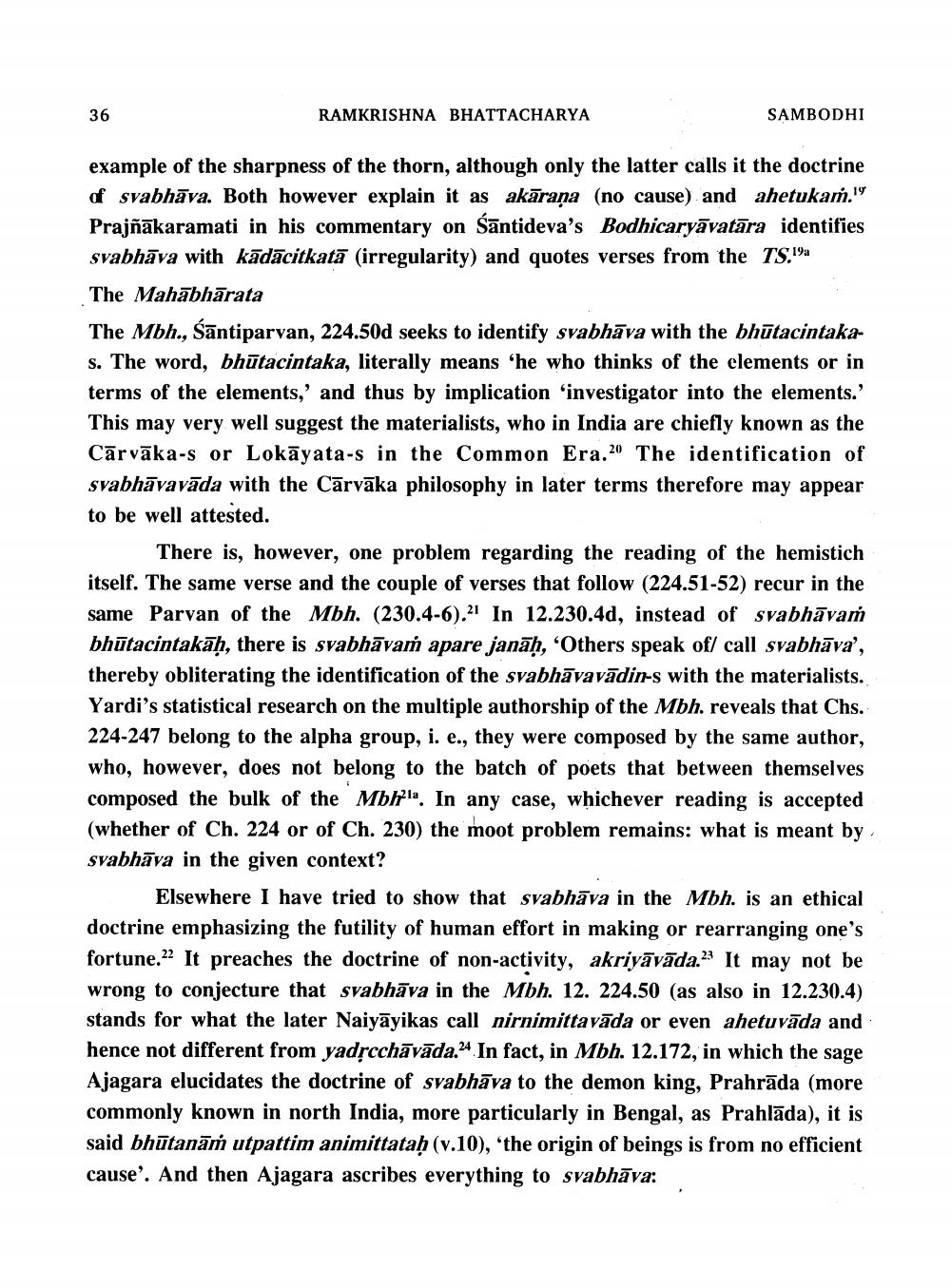________________
RAMKRISHNA BHATTACHARYA
SAMBODHI
example of the sharpness of the thorn, although only the latter calls it the doctrine of svabhāva. Both however explain it as akārana (no cause) and ahetukar.'' Prajñākaramati in his commentary on śāntideva's Bodhicaryāvatāra identifies svabhāva with kādācitkatā (irregularity) and quotes verses from the TS.19a The Mahābhārata The Mbh., śāntiparvan, 224.50d seeks to identify svabhāva with the bhūtacintakas. The word, bhūtacintaka, literally means 'he who thinks of the elements or in terms of the elements,' and thus by implication 'investigator into the elements.' This may very well suggest the materialists, who in India are chiefly known as the Cārvāka-s or Lokāyata-s in the Common Era.20 The identification of svabhāvarāda with the Cārvāka philosophy in later terms therefore may appear to be well attested.
There is, however, one problem regarding the reading of the hemistich itself. The same verse and the couple of verses that follow (224.51-52) recur in the same Parvan of the Mbh. (230.4-6).21 In 12.230.4d, instead of svabhāvaṁ bhūtacintakāh, there is svabhāvar apare janāh, 'Others speak of/ call svabhāva', thereby obliterating the identification of the svabhāvavādin-s with the materialists. Yardi's statistical research on the multiple authorship of the Mbh. reveals that Ch 224-247 belong to the alpha group, i. e., they were composed by the same author, who, however, does not belong to the batch of poets that between themselves composed the bulk of the Mbhla. In any case, whichever reading is accepted (whether of Ch. 224 or of Ch. 230) the moot problem remains: what is meant by svabhāva in the given context?
Elsewhere I have tried to show that svabhāva in the Mbh. is an ethical doctrine emphasizing the futility of human effort in making or rearranging one's fortune.22 It preaches the doctrine of non-activity, akriyāvāda.23 It may not be wrong to conjecture that svabhāva in the Mbh. 12. 224.50 (as also in 12.230.4) stands for what the later Naiyāyikas call nirnimittavāda or even ahetuvāda and hence not different from yadrcchāvāda.24 In fact, in Mbh. 12.172, in which the sage Ajagara elucidates the doctrine of svabhāva to the demon king, Prahrāda (more commonly known in north India, more particularly in Bengal, as Prahlāda), it is said bhūtanāṁ utpattim animittataḥ (v.10), 'the origin of beings is from no efficient cause'. And then Ajagara ascribes everything to svabhāva:




